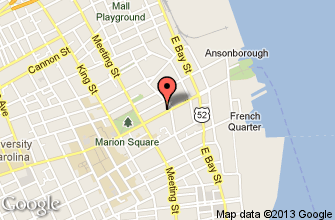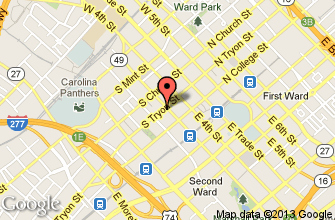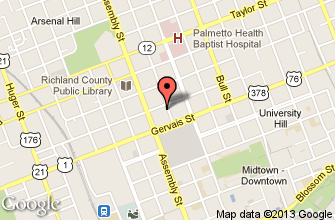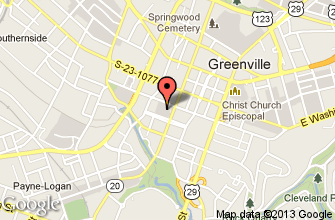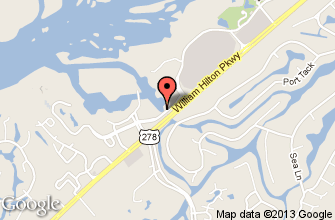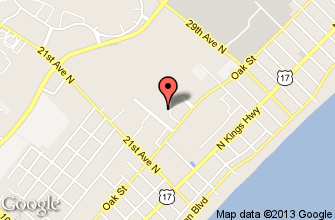News Room
PrintBlue Bell Creameries: Dishing Out a New Value Treat for Preference DefendantsMichael H. Weaver, Esq.
August
20, 2018
Trying to explain the primary purpose of Section 547 of the Bankruptcy Code to a client that just received a demand letter or complaint to avoid and recover preferential transfers can be a tough sell. Although the Section’s goal – the fair and equitable treatment of creditors – sounds good, it often loses some of its appeal when the client realizes it might be required to repay amounts it received (for goods or services it actually provided) for that goal to be achieved.
The saving grace during those early conversations with a client is often found in your explanation of the defenses that might limit your client’s preference exposure or except the transfers from avoidance in their entirety. One of the defenses often cited by creditors in response to preferential transfer claims is the “subsequent new value” defense (or simply, the new value defense) found in 11 U.S.C. § 547(c)(4). Specifically, that section provides that a trustee may not avoid a preferential transfer to the extent that after the transfer was made, the creditor gave new value “to or for the benefit of the debtor – (A) not secured by an otherwise unavoidable security interest; and (B) on account of which new value the debtor did not make an otherwise unavoidable transfer to or for the benefit of such creditor”.
Practitioners and jurists have disagreed over the years on the requirements of the new value defense. Specifically, some courts have required that the subsequent new value that is provided must remain unpaid at the time the bankruptcy case was filed in order to be available to reduce a creditor’s preferential exposures. Other courts, including most recently the Eleventh Circuit Court of Appeals, have held otherwise.
On August 14, 2018, the Eleventh Circuit Court of Appeals issued its opinion in Kaye v. Blue Bell Creameries, Inc. (In re BFW Liquidation, LLC), __ F.3d __, 2018 WL 3850101 (11th Cir. 2018) and held that new value does not need to remain unpaid in order to successfully apply the “subsequent new value defense”. The Court’s holding constitutes a win for creditors and places the Eleventh Circuit in line with similar holdings by the Fourth, Fifth, Eighth and Ninth Circuits.
The Blue Bell Creameries opinion stems from the bankruptcy filing by Bruno’s Supermarkets, LLC (“Bruno’s”) in early 2009. Bruno’s was a grocery-store chain that operated in Alabama and Florida and, at the time of its bankruptcy filing, had more than 60 stores. Blue Bell Creameries (“Blue Bell”) supplied ice cream and other frozen treats to Bruno’s on credit. Historically, Blue Bell received payments from Bruno’s twice a week. However, in the period leading up to Bruno’s bankruptcy filing, payments were only made once a week and Bruno’s began stretching out payments to its vendors.
During the preference period (i.e., the 90 day period prior to a debtor’s bankruptcy filing), Blue Bell received more than $560,000 in 13 separate payments from Bruno’s (the “Preferential Transfers”). During that same period, Blue Bell made more than 1,700 deliveries on an almost daily basis supplying Bruno’s with more than $435,000 worth of ice cream and other goods.
In 2011, the trustee for Bruno’s liquidating trust (the “Trustee”) commenced an adversary proceeding to avoid and recover the Preferential Transfers. Blue Bell asserted § 547(c)(2)’s ordinary course of business defense as well as the new value defense. The bankruptcy court rejected Blue Bell’s ordinary course of business defense which Blue Bell did not challenge on appeal. The bankruptcy court also concluded that Blue Bell could only use the new value defense so long as the new value it sought to apply to offset its preference liability remained unpaid relying on language found in the Eleventh Circuit’s earlier opinion in In re Jet Florida System, Inc., 841 F.2d 1082 (11th Cir. 1988). Blue Bell filed a notice of appeal to the district court. However, the parties jointly certified that an immediate appeal of the order to the Eleventh Circuit Court of Appeals would materially advance the case and the Eleventh Circuit granted the petition.
On appeal, the Court first disposed of the Trustee’s argument that Jet Florida and the language found in that opinion about new value having to remain unpaid was binding precedent. The Court concluded that the language the Trustee relied on in Jet Florida was not necessary to the result the Court reached in that case and consequently was dictum. The Court therefore was “free to give…fresh consideration” to the issue of whether new value has to remain unpaid in order to offset it against a defendant’s preference exposure.
The Court then turned to the plain language of the statute itself (i.e., § 547(c)(4)). The Court noted that the plain language of the statute does not require that all new value remain unpaid. Rather, “the statute simply excludes ‘paid’ new value that is paid for with ‘an otherwise unavoidable transfer.’” The Court also noted how its holding helps promote one of the principal objectives of the provisions found in § 547 of the Bankruptcy Code – namely, encouraging creditors to continue to do business with and extend credit to financially distressed debtors.
The saving grace during those early conversations with a client is often found in your explanation of the defenses that might limit your client’s preference exposure or except the transfers from avoidance in their entirety. One of the defenses often cited by creditors in response to preferential transfer claims is the “subsequent new value” defense (or simply, the new value defense) found in 11 U.S.C. § 547(c)(4). Specifically, that section provides that a trustee may not avoid a preferential transfer to the extent that after the transfer was made, the creditor gave new value “to or for the benefit of the debtor – (A) not secured by an otherwise unavoidable security interest; and (B) on account of which new value the debtor did not make an otherwise unavoidable transfer to or for the benefit of such creditor”.
Practitioners and jurists have disagreed over the years on the requirements of the new value defense. Specifically, some courts have required that the subsequent new value that is provided must remain unpaid at the time the bankruptcy case was filed in order to be available to reduce a creditor’s preferential exposures. Other courts, including most recently the Eleventh Circuit Court of Appeals, have held otherwise.
On August 14, 2018, the Eleventh Circuit Court of Appeals issued its opinion in Kaye v. Blue Bell Creameries, Inc. (In re BFW Liquidation, LLC), __ F.3d __, 2018 WL 3850101 (11th Cir. 2018) and held that new value does not need to remain unpaid in order to successfully apply the “subsequent new value defense”. The Court’s holding constitutes a win for creditors and places the Eleventh Circuit in line with similar holdings by the Fourth, Fifth, Eighth and Ninth Circuits.
The Blue Bell Creameries opinion stems from the bankruptcy filing by Bruno’s Supermarkets, LLC (“Bruno’s”) in early 2009. Bruno’s was a grocery-store chain that operated in Alabama and Florida and, at the time of its bankruptcy filing, had more than 60 stores. Blue Bell Creameries (“Blue Bell”) supplied ice cream and other frozen treats to Bruno’s on credit. Historically, Blue Bell received payments from Bruno’s twice a week. However, in the period leading up to Bruno’s bankruptcy filing, payments were only made once a week and Bruno’s began stretching out payments to its vendors.
During the preference period (i.e., the 90 day period prior to a debtor’s bankruptcy filing), Blue Bell received more than $560,000 in 13 separate payments from Bruno’s (the “Preferential Transfers”). During that same period, Blue Bell made more than 1,700 deliveries on an almost daily basis supplying Bruno’s with more than $435,000 worth of ice cream and other goods.
In 2011, the trustee for Bruno’s liquidating trust (the “Trustee”) commenced an adversary proceeding to avoid and recover the Preferential Transfers. Blue Bell asserted § 547(c)(2)’s ordinary course of business defense as well as the new value defense. The bankruptcy court rejected Blue Bell’s ordinary course of business defense which Blue Bell did not challenge on appeal. The bankruptcy court also concluded that Blue Bell could only use the new value defense so long as the new value it sought to apply to offset its preference liability remained unpaid relying on language found in the Eleventh Circuit’s earlier opinion in In re Jet Florida System, Inc., 841 F.2d 1082 (11th Cir. 1988). Blue Bell filed a notice of appeal to the district court. However, the parties jointly certified that an immediate appeal of the order to the Eleventh Circuit Court of Appeals would materially advance the case and the Eleventh Circuit granted the petition.
On appeal, the Court first disposed of the Trustee’s argument that Jet Florida and the language found in that opinion about new value having to remain unpaid was binding precedent. The Court concluded that the language the Trustee relied on in Jet Florida was not necessary to the result the Court reached in that case and consequently was dictum. The Court therefore was “free to give…fresh consideration” to the issue of whether new value has to remain unpaid in order to offset it against a defendant’s preference exposure.
The Court then turned to the plain language of the statute itself (i.e., § 547(c)(4)). The Court noted that the plain language of the statute does not require that all new value remain unpaid. Rather, “the statute simply excludes ‘paid’ new value that is paid for with ‘an otherwise unavoidable transfer.’” The Court also noted how its holding helps promote one of the principal objectives of the provisions found in § 547 of the Bankruptcy Code – namely, encouraging creditors to continue to do business with and extend credit to financially distressed debtors.
Although not as sweet as ice cream, the holding in Blue Bell Creameries is a treat for creditors and helps provide additional clarity for and assurance to those who elect to continue shipping goods and providing services on credit to financially distressed debtors.

